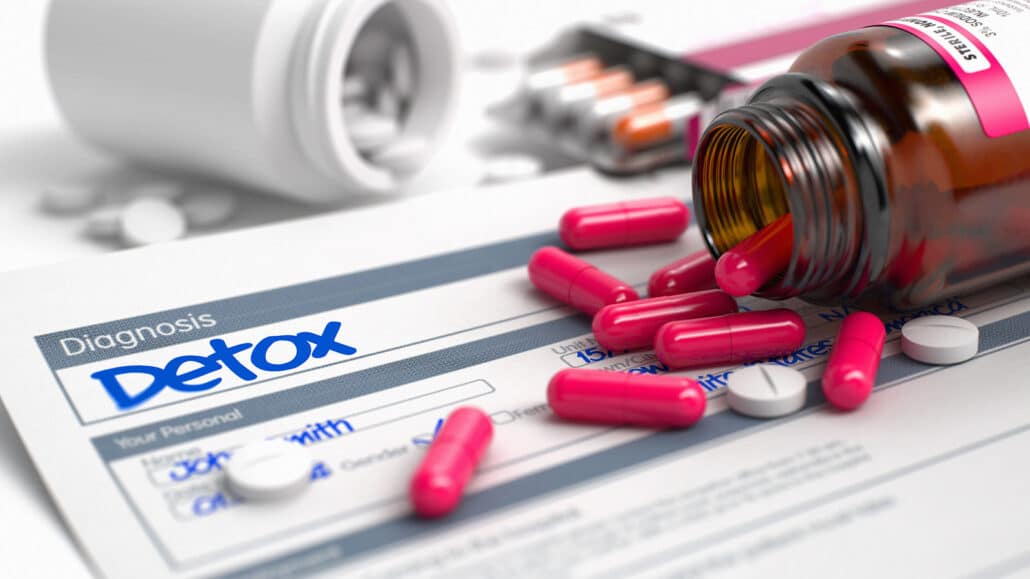Every year, more and more people across the world abuse prescription drugs. Unfortunately, although prescription pain medications have legitimate medical applications, they can also be extremely addictive. If someone in your life struggles with Darvocet or Darvon addiction, then they will likely go through detox when they decide to become sober. Detox can be scary if you don’t know what to expect, so if you’re trying to live a healthier life, then you need to pay attention to this guide on Darvocet detox and addiction treatment to learn more.
Table of Contents
What Darvocet and Darvon Are
Darvocet and Darvon are two pain medications that contain propoxyphene and acetaminophen. Propoxyphene is a synthetic opioid analgesic, so people who take it can develop an addiction with prolonged use. Although the U.S. Food and Drug Administration (FDA) banned drugs containing propoxyphene in 2010 after researchers found that the drug caused heart arrhythmia and other serious health problems, people can still purchase Darvocet and Darvon on the black market.

Alternatives to Darvocet and Darvon
Because it has been so long since the FDA banned propoxyphene, it has become very difficult to find Darvocet, Darvon, and other drugs that contain propoxyphene in recent years. However, since propoxyphene is a synthetic opioid, users can easily substitute the drug with other opioids. Now, people who started with Darvocet and Darvon simply buy oxycodone, hydrocodone, codeine, tramadol, and other prescription opioids to sustain their addiction. Many opioid abusers eventually turn to heroin to get a stronger high for less money.
Risks of Long-Term Opioid Abuse
Overdose
Opioids slow a person’s breathing and heart rate, so if someone takes a large dose of an opioid, then their heart and lungs might not be able to transport enough blood to the brain, which can lead to death. Moreover, many people pass out and choke on their own vomit while high on opioids. Figuring out a safe dose can be very difficult, and heroin often contains fentanyl and other dangerous adulterants. Consequently, overdoses are common among individuals who struggle with opioid addiction and can lead to life-threatening situations.
Liver Damage
Darvocet, Darvon, and many other prescription painkillers contain acetaminophen, which easily damages the liver in high doses. Alcohol and other drugs exacerbate the liver-damaging effects of prescription painkillers. Liver transplants typically have long waiting lists, and individuals who struggle with drug addiction are unlikely to find a donor, so many long-term opioid abusers suffer from liver failure later in life.
Legal Trouble
Recreational opioid use is illegal across the United States, and penalties can vary drastically between states. While first-time offenders may get away with a slap on the wrist for possession in one state, another state will imprison opioid abusers for years for the same crime. Driving with opioids in your system is also against the law, so individuals who struggle with opioid abuse face a higher risk of receiving a DUI charge.
Chronic Pain
Over time, opioids negatively affect the body’s ability to handle pain on its own. Thus, regular opioid abusers often suffer from severe aches and pains when they’re not high. This pain can persist for years after an opioid user achieves sobriety.
HIV and Hepatitis
Needles can be expensive and difficult to obtain. Because of this, many heroin users share needles and reuse old needles. Viral infections spread through blood and other body fluids, so when someone shares a needle, they face a very high likelihood of contracting HIV, hepatitis, or another serious infection.

Major Signs of Opioid Addiction
Money Problems
Prescription opioids are very expensive. As someone continues to struggle with opioid addiction, they need to take higher doses to experience a satisfactory high. Consequently, opioid users gradually spend more and more money to get a sufficient supply to sustain their habit. To fund their addiction, many opioid users sell their valuables and borrow money. When these methods are no longer practical, opioid users may ignore important bills or steal from their loved ones to afford their next dose.
Drowsiness
Opioids depress a person’s cognitive functions and physical reactions. As a result, an individual under the influence of opioids may seem very lethargic. Someone who has just taken a dose may stagger, slur their words, or sleep more often than usual.
Needle Marks
While some heroin users smoke or snort heroin to get high, many directly inject it into their veins for the strongest effect. Needle injections tend to leave red marks for several days or weeks. Although the arms are the easiest place to find a vein, users can inject the drug into any vein in the body, so you shouldn’t assume that someone is sober just because they don’t have needle marks on their arms. Some heroin users wear long pants and long-sleeved clothing throughout the year to cover needle marks.
Constipation
Opioids are notorious for causing constipation. Because of this, most opioid users spend an inordinate amount of time in the bathroom, and they may go to the bathroom several times in a short period to try to relieve themselves. When they’re not in the bathroom, they typically suffer from bloating and discomfort resulting from severe pressure in their bowels.
Abnormal Breathing
High doses of opioids can dangerously inhibit a person’s breathing. Someone who is under the influence of opioids may take extremely shallow breaths, or there may be long pauses between breaths. Abnormal breathing can be deadly. With that in mind, you need to call an ambulance immediately if someone near you exhibits shallow or irregular breathing.
Poor Concentration
Opioids can slow a person’s mental processes. When someone is under the influence of opioids, they may have difficulty following conversations or concentrating on everyday activities. An individual who has recently taken opioids may also be unable to perform complex tasks, follow basic directions, or discuss complicated topics.

What To Expect From Detox
Detoxification is the body’s process of expelling an addictive substance from its systems and adapting to function without the substance. Most individuals who struggle with opioid addiction will start to go through detox after 12 hours without a dose. Initial detox symptoms include dry mouth, aches and pains, nausea, rapid heartbeat, gastrointestinal problems, and anxiety. These symptoms will continue to worsen over the course of a week, and they should rapidly taper off after the seventh day.
How a Professional Detox Center Can Help
The worst symptoms of detox usually last for up to a week. If you’re at home during this time, then you may have extreme difficulty functioning normally and keeping yourself safe. On top of that, you will feel more tempted to use opioids than ever before. Detox centers have skilled medical professionals and addiction specialists on standby to make this difficult week as safe and pleasant as possible. If you experience any kind of medical emergency or mental health crisis while you’re going through detox, the elite staff members at a detox center will help you get through it. Although Long Island Interventions doesn’t have a detox program, they will gladly connect you with the best local resources so that you can take the first step on your journey to recovery.
Addiction Treatment After Detox
After you detox, you still need to build the necessary skills to sustain a sober lifestyle. Addiction rehab programs provide individual therapies, group therapy, holistic therapies, and other addiction treatments to help patients better regulate their emotions and resist the temptation to relapse. Every patient has unique needs, so the professionals at an addiction recovery center will take all aspects of your situation into account to help you pick the right treatment program.
Seek Opioid Addiction Treatment for a Better Future
Opioid addiction is incredibly dangerous, and you’re more likely to experience severe physical and mental problems if you continue to abuse heroin or prescription opioids. Life is short, so it’s important to make the most out of the time that you have. Opioids will destroy your life if you don’t stop using them, so you need to reach out to Long Island Interventions today to find out more about your addiction treatment options, including detoxification and inpatient or outpatient programs.

For those struggling with Darvocet addiction, professional help is crucial. This includes understanding the effects of propoxyphene, managing withdrawal symptoms, and addressing issues such as cravings and mental health disorders. Long-term substance abuse can lead to severe side effects, including heart problems and jaundice, due to the habit-forming nature of opioid analgesics like Darvocet.
Our treatment center offers various services, including outpatient and inpatient programs, to help individuals on their path to recovery. We emphasize a comprehensive approach to substance abuse treatment, addressing both the central nervous system impacts and the broader well-being of each patient. With the support of our skilled providers and access to the best treatment facilities, you can overcome substance use disorders and build a healthier future.
By working with healthcare providers and utilizing evidence-based practices, we ensure that each patient receives the best possible care.
Please contact Long Island Interventions for information about Darvocet and Darvon Addiction Treatment near you.

